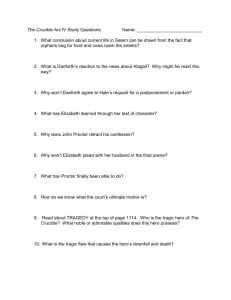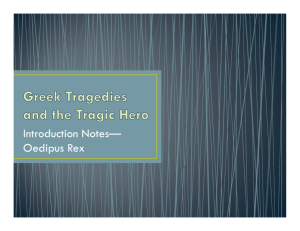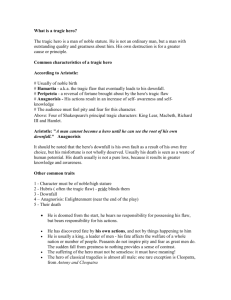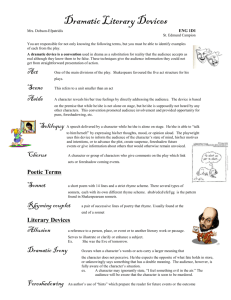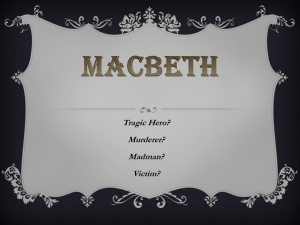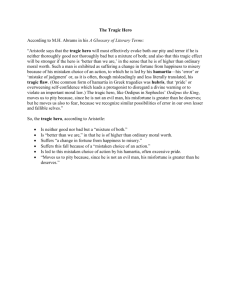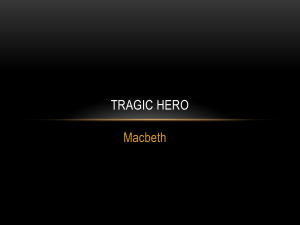Julius Caesar: Tragic Hero Essay Prompt
advertisement
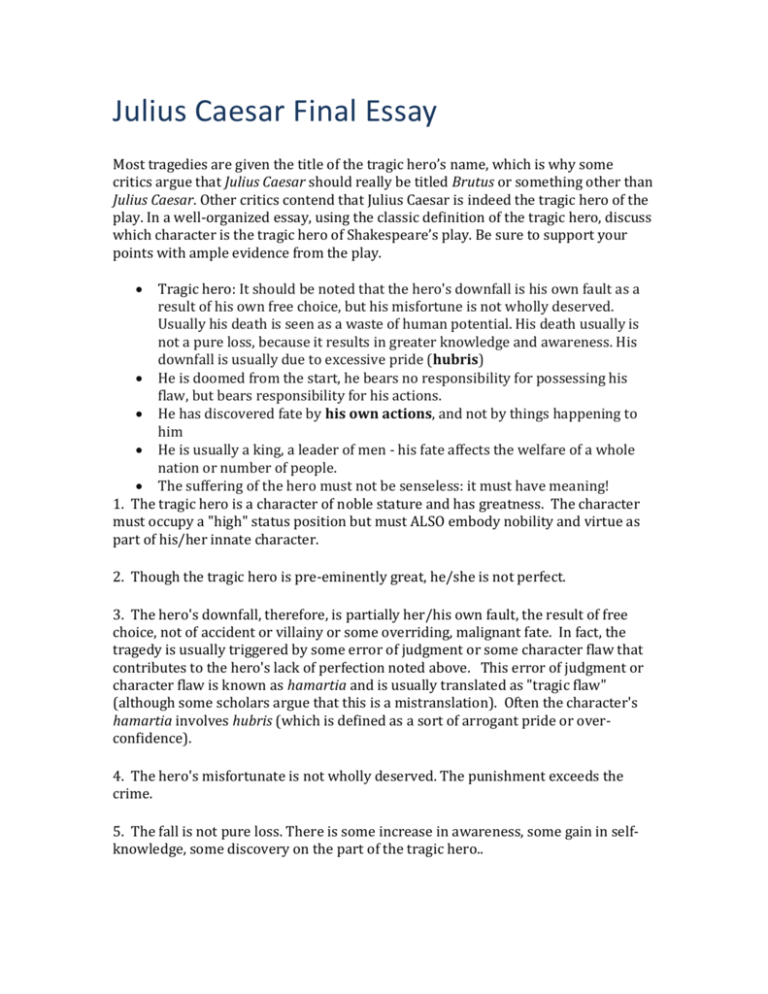
Julius Caesar Final Essay Most tragedies are given the title of the tragic hero’s name, which is why some critics argue that Julius Caesar should really be titled Brutus or something other than Julius Caesar. Other critics contend that Julius Caesar is indeed the tragic hero of the play. In a well-organized essay, using the classic definition of the tragic hero, discuss which character is the tragic hero of Shakespeare’s play. Be sure to support your points with ample evidence from the play. Tragic hero: It should be noted that the hero's downfall is his own fault as a result of his own free choice, but his misfortune is not wholly deserved. Usually his death is seen as a waste of human potential. His death usually is not a pure loss, because it results in greater knowledge and awareness. His downfall is usually due to excessive pride (hubris) He is doomed from the start, he bears no responsibility for possessing his flaw, but bears responsibility for his actions. He has discovered fate by his own actions, and not by things happening to him He is usually a king, a leader of men - his fate affects the welfare of a whole nation or number of people. The suffering of the hero must not be senseless: it must have meaning! 1. The tragic hero is a character of noble stature and has greatness. The character must occupy a "high" status position but must ALSO embody nobility and virtue as part of his/her innate character. 2. Though the tragic hero is pre-eminently great, he/she is not perfect. 3. The hero's downfall, therefore, is partially her/his own fault, the result of free choice, not of accident or villainy or some overriding, malignant fate. In fact, the tragedy is usually triggered by some error of judgment or some character flaw that contributes to the hero's lack of perfection noted above. This error of judgment or character flaw is known as hamartia and is usually translated as "tragic flaw" (although some scholars argue that this is a mistranslation). Often the character's hamartia involves hubris (which is defined as a sort of arrogant pride or overconfidence). 4. The hero's misfortunate is not wholly deserved. The punishment exceeds the crime. 5. The fall is not pure loss. There is some increase in awareness, some gain in selfknowledge, some discovery on the part of the tragic hero.. Answer format: Using MLA format write a multi-paragraph response to the prompt. Each paragraph should have a minimum of two pieces of textual evidence in the form of quotes. For each concrete detail, you must have an introductory sentence with background and context, and a minimum of two sentences of commentary/analysis. This analysis should NOT summarize the quote, paraphrase the quote, or deviate from the topic of the paragraph. Commentary and analysis must analyze the quote in relation to the topic sentence. Analysis, at its heart, seeks to answer how and why.

